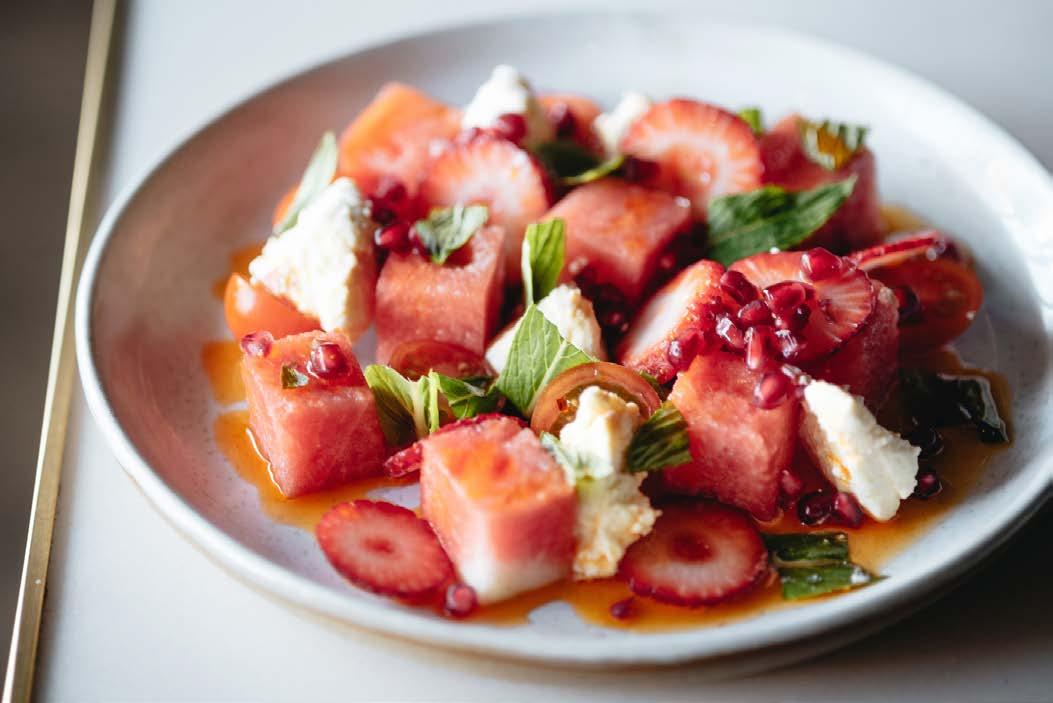
7 minute read
GIDGET FOUNDATION ADVOCATES
from THE DROP ISSUE 03
Gidget Foundation Australia
While we’re all struggling to adapt to diferent ways of working and living, expectant and new parents are facing a particularly challenging time. For many years, Shorty’s Liquor has been proud to partner with the Gidget Foundation Australia, a remarkable organisation supporting expectant and new parents experiencing perinatal depression and anxiety. We caught up with Arabella Gibson, CEO at Gidget Foundation Australia, to chat about the challenges expectant and new parents are facing throughout COVID-19, and the ways they (and their friends and families) can be there to help.
Advertisement
For more information visit gidgetfoundation.org.au
Talk to us about loneliness. Most people are spending more time at home because of COVID-19. Why would expectant and new parents be feeling more lonely?
Physically, we might be surrounded by our family but at some level there is another type of loneliness which is about real connection. Exposure to social media and how it portrays ‘perfect’ lives can enhance this feeling of isolation even more and if we add in the efects of continued restrictions and COVID-related issues some people are feeling less connected than ever before. Some of us might be craving some time out for ourselves and some freedom to do what we would like to be able to do to recharge but being a new parent and getting space almost seems impossible. It seems that there is a real need for true connection with our loved ones whilst a need or yearning for some space! Some of us have been getting caught up with social media at bedtimes or throughout the day and this can lead us to wake up feeling overwhelmed or constantly worried about COVID and what lies ahead. For some couples, there has been an increased understanding of each other’s lives and if there has been open, honest and sensitive communication, then maybe they are weathering this year of constant change and adaptation ok. For others, and we suspect most of our new parents, it has been tough. Whilst under stress, it is difcult to always be sensitive to our partners needs and communicate efectively. Whilst the pace of life has settled a bit, the extra stresses due to COVID have placed enormous stress on new families. Irritations and a new focus on the details or habits of our partners might be more obvious than ever before. Maybe you have noticed your partner half listening as they juggle life’s demands or be physically present but emotionally absent. We know that being in a crisis exacerbates existing tensions in our relationships and in society in general. It is important to remember that you are not alone in this although it might feel like it. In fact, for the frst time in most of our lives, we are more connected than ever; all experiencing the same issues.
Have you got any tips on managing this loneliness?
Feelings of loneliness are very real right now. Firstly, acknowledge your feelings and accept them for what they are. Reach out to others and stay connected - it might alleviate some of those feelings of isolation. Particularly look to communicate with those who you feel will really listen and connect with trusted sources. Remember to pay attention to your own feelings and work out the best way to deal with those safely. Work out ways with your partner, friends and family, as to how to reconnect in a more meaningful way. Suggest some diferent ideas for activities together with friends. If that means doing it virtually, if restricted, then get a little creative! It’s important to take time out for yourself to reconnect with self and nature. Finally, reassure yourself that this too will pass.
Is there any advice you can give around relationships for expectant and new parents at this time?
It is hard to predict how much a baby can change a relationship. No-one is totally prepared for it and this seems to be the main reason for relationship dissatisfaction early on. The juggle between work and family can be very difcult. There is less quality couple time together and often intimacy has decreased. Men’s roles have also changed so much over the years and we know that they too need care, like the
Tips For Expectant & New Parents While Being At Home
mums at this time in their lives. Both expectant and new parents have extra stresses to manage as they adjust to parenthood and adding in COVIDrelated stresses has put even more strain on daily life. Whether we are amid a COVID-19 outbreak or not, relationships are a work in progress and realistically take continual efort in one way or another to help them grow and be sustained. COVID however, has meant an increase in both tensions at home for a lot of our clients and Australia wide, more reports of domestic violence. Couples have been managing many new and prolonged stressors. When stress is ongoing, the efects can impact negatively on our physical and mental health. More so now than ever, we need to work on our relationships, discuss what isn’t working so well and see if anything can be changed and emphasise what has been working well and celebrate that. When we can manage confict in a constructive way, we also model to our children how to deal with confict. They learn from watching how we process emotion (even before they are verbal), and how we manage our more intense feelings. So, for our own beneft, that of our partners as well as our children, it is worthwhile having some tips up your sleeve for managing relationships. Dads can be attentive, show initiative and take responsibility on the domestic front. They can also take the baby/child to give their partner a break and gain confdence in parenting. It’s also important to listen and understand what is going on with their partner and try not to fx things quickly. Mums can try to understand that partners struggle too. Check in with your partner, allow them some space, and give positives. Learn and respect the fact that we all have diferent communication styles. For expectant and new parents who are spending more time in their home, it is very important to still fnd ways to keep occupied and connected during this unusual and dynamic time. Some of these activities you can do by yourself, with your partner (or older children at home) and some you can do with your infants. Please keep in mind some of these will be easier either antenatally, or if baby is sleeping. Add your own, get creative and share it with your family.
Decide what fts for you. It’s hard to take it all in but here are some general tips.
Close quarters can impact on everyone’s frustration levels. If you need a break, even if it’s just to be in another room by yourself, let your family know. Washing and housework when you are sitting amongst it each day can be overwhelming and never ending. It is ok to put it aside and schedule laundry time/cleaning time, so that you are able to do other pleasurable things. Screens/televisions are a useful distraction but too much, especially before bedtime, can impact our ability to sleep well and reduce our energy levels. Moderate how much screen time you are getting particularly before bedtime. Try turning everything of at least one hour before bed. If you like to listen to a meditation or sleep story, set your phone to switch of once it ends without having to look at your screen. Similarly, if you are a breastfeeding mum, try not to read too many news articles or scroll on social media during night feeds as this may impact on your ability to go back to sleep between cycles both due to being on a screen, and also due to the content of the news currently. Give each other space and time out when you can, for example, walk the dog. Keep walking if you can, for example, at quiet times by yourself or with someone - whatever works. Break up your day into sections e.g. in morning do one thing you enjoy. Start a gratitude journal- this helps develop a more positive headspace. Think of acts of kindness you can carry out Still try to get your take away cofees etc, go for a drive. Limit watching TV series and movies with pandemic content, watch a funny movie instead. Be mindful of the language you use with children and yourselves e.g. not pandemic but outbreak, reduces sense of panic. Remind yourself the world has been through many challenges and that this one too is time limited. Find ways to connect with people who fuel your soul through video platforms like WhatsApp or Zoom. Be creative in how you keep in touch with work friends e.g. do a regular Zoom meeting and check in Be compassionate towards yourself and be realistic about what expectation you have of yourself and others. Keep life simple and focus on what really matters to you e.g. family, love, being together, friends, pets, hobbies, or just surviving each day. Be a good monitor of yourself and ask for support if it gets tough. Maintain helpful self-talk . Focus eforts on what is within your power. Try to eat a reasonably balanced diet, avoid excessive alcohol, cafeine and sweets.










